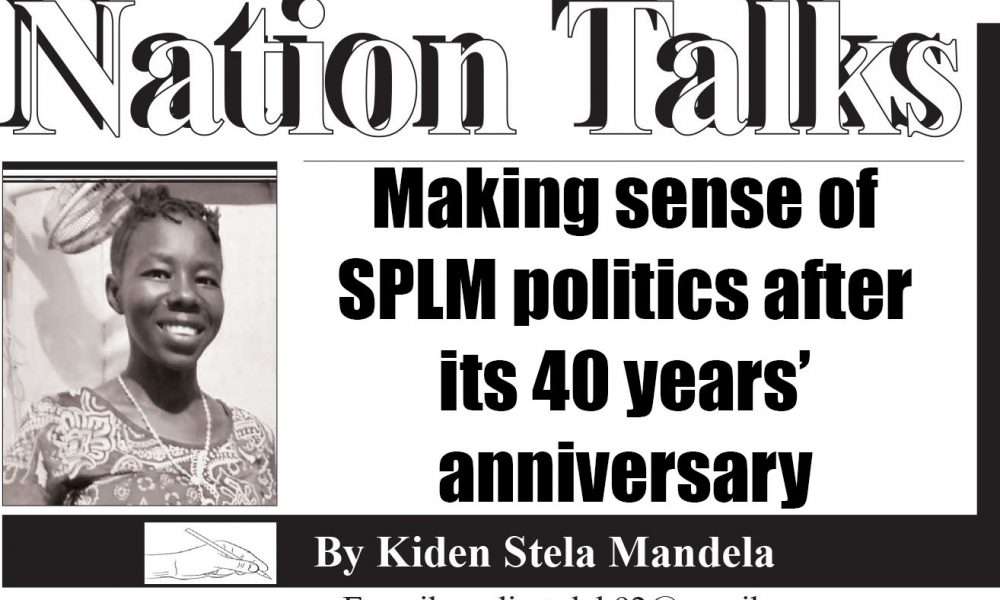In 1983 a group of South Sudanese tapped into the opportunity that existed with bad ruler ships of the Sudan’s regimes against South Sudanese. They took up the mantle to challenge the Khartoum governments both politically and militarily. This led to the formation of the party label called Sudan People’s Liberation Movement (SPLM) under the late Dr. John Garang De Mabior.
Dr. John was so ambitious and proactive during the liberation struggle times and gave so many appealing speeches which up to date touch the hearts of many people, and at the same time the speeches still haunt SPLM as an entity since the party went off its vision lane.
SPLM machinery with the help of international support managed to gain leverage in Sudan’s political terrain, and welded both political and military power until Comprehensive Peace Agreement was reached in 2005. The peace defined the future of South Sudanese in Sudan’s politics and gave them a roadmap to choose. Unfortunately, Garang lost his life in a helicopter crash in the same year and the incident made him not live to see his vision, and the destiny of South Sudan.
From 2005, SPLM became the ruling party in South Sudan with decision-making power over South Sudanese. The government institutions both at national and state level were formed and created. Because South Sudanese suffered for a long time under Khartoum regimes, SPLM propagated a lot for separation from Sudan and won public sympathy until South Sudanese voted for separation from Sudan.
The party, with lessons learned from Sudan’s bad politics against South Sudanese, adopted democratic governance (constitution) model emphasizing power belongs to the people. It preached democratic values, human rights, and prosperity for South Sudanese. However, political blunder by the party right from 2005-2011 made it blind to oversee good infrastructural developments, best economic policy, institutions building, security sector transformation, political pluralism, rule of law, and sound foreign policy.
The party appeared to be democratically challenged, in only what came to bear was in 2013 as it was unable in a democratic way to conclude a party convention to determine party flag bearer for the election which was supposed to take place in 2015. As a result, felt out within the party by top officials and led to deadly conflicts that raged the young nation until peace agreement was reached. The poor political practices have brutalized both the political and economic potential of the country and have drawn citizens into poverty.
The much-invented justice, liberty, and prosperity as the nation’s philosophy hang only on portrait without reality on the ground. As South Sudan sees election ahead, SPLM think tanks including other political parties need to reflect back on how things got to where they are now politically, economically, socially and culturally.
Their manifestos should not only offer good policy but should also match with the political behaviors which characterize discipline, tolerance, and commitment not to influence military or state establishments into civil politics as insurance against opponents.
God Bless South Sudan.
Be right there!




